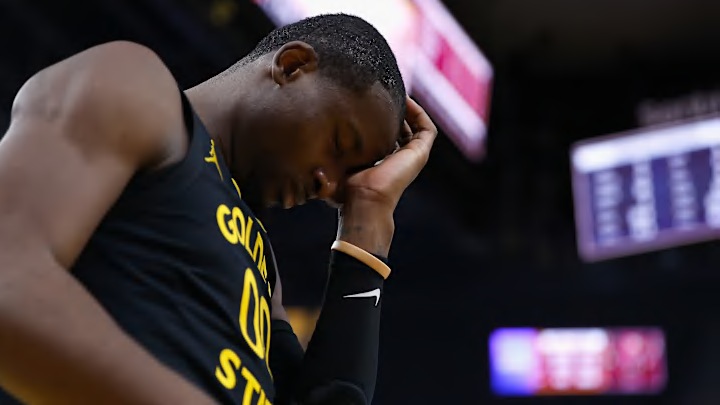As the Golden State Warriors have attempted to negotiate with restricted free agent Jonathan Kuminga this offseason, the biggest danger to the organization has always come in the form of Kuminga's qualifying offer.
Were the young forward to accept it, he would guarantee himself unrestricted free agency next offseason, but, now that Cam Thomas of the Brooklyn Nets has taken his, the market next offseason may become even more crowded, lessening Kuminga's chances of finding the massive deal he desires.
Throughout the negotiation process, Kuminga has largely held firm to his stance that he is worth a $30 million annual value. Yet, in taking the qualifying offer, he could be setting himself up for an almost impossible task in attempting to earn back the money he would give up on a short-term deal.
Cam Thomas' qualifying offer is a sign of a crowded market yet again next offseason
As the offseason wore on, all four of the major restricted free agents, including Kuminga, Thomas, Josh Giddey and Quentin Grimes, had almost no motion concerning either a finalization to their negotiations or rumblings of a sign-and-trade or offer sheet.
While certain parties have shown interest in Kuminga and Giddey, a cold market with almost a complete absence of teams with cap space has made the entire league hesitant to take a gamble on a restricted free agent.
Therefore, Thomas, in accepting his $6 million qualifying offer, is betting on himself to perform this season and secure a large contract as an unrestricted free agent next offseason, when there will hopefully be more financial flexibility for his potential destinations.
Yet, this presents a serious problem for Kuminga. As ball-dominant, score-first players who require almost unlimited runway, Kuminga and Thomas would certainly be looked at by similar teams in free agency. Moreover, in order to have the cap space to throw $25 or $30 million a year at a young, largely unproven player, it would have to be a select group of non-contending teams like the Charlotte Hornets, the Washington Wizards or the Utah Jazz.
Therefore, Thomas's bet on himself is the first signal from a stagnant market that Kuminga's odds might be better returning to Golden State and allowing them to find him a new destination through a trade. He could then, if he wished, enter the free agent market in two offseasons with $45 million under his belt already.
If he were to take the qualifying offer, however, he would need to make up the roughly $14 million difference between that and the Warriors' short-term offer in order to make it worth it: a proposition that becomes increasingly unlikely as the market continues to shake out.
